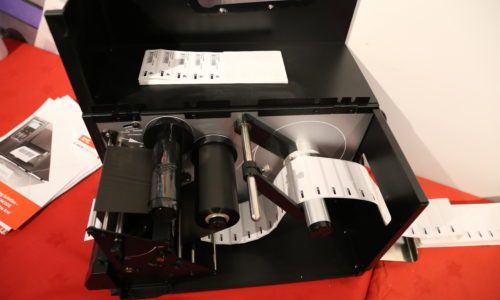
Retailers that use radio-frequency identification tags – RFID for short – can expect to see their sales increase, suggests a new study, which analysed the use of the tags by 10 retailers and found increases of up to 5.5%.
The measuring the impact of RFID in retailing study, from Professor Adrian Beck at the University of Leicester, and supported by GS1 UK, the supply chain and data standards organisation in partnership with ECR Community’s Shrinkage and OSA Group, is thought to be the most comprehensive study test of the technology. It involved leading retailers and brands Adidas, C&A, Decathlon, LuluLemon, Jack Wills, John Lewis, Marc O’Polo, Marks & Spencer, River Island and Tesco.
Professor Beck combined face-to-face interviews with quantitative data on business performance to find that all the companies saw a positive return on their investment on using RFID, and that all saw the increased stock availability that came through RFID boost sales. How much the sales boost was varied between 1.5% and 5.5%, equating to a sales boost of between €1.4bn and €5.2bn. Retailers said inventory accuracy improved by more than 50%, reaching between 93% and 99% accuracy. Six of the ten companies involved said they were able to reduce their total stockholdings, by between 2% and 13% – while the remaining four companies did not share this detail.
Source: RFID tags can deliver real boost to sales: study – InternetRetailing
